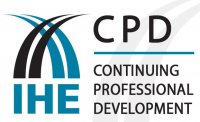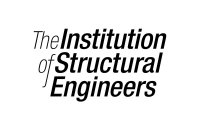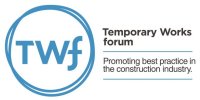In the UK, the resistance requirements for buildings are specified in the Building Regulations. The development of the Eurocodes provides for alternative methods for satisfying the regulatory requirement through performance based calculation, allowing for greater innovation and flexibility in design.
Many designers will be unfamiliar with the principles of structural fire engineering design and this one day course introduces structural fire engineering for steel, concrete and composite steel and concrete structures using Eurocodes.
Aimed at the structural designer, it extends the common principles and concepts of structural behaviour to encompass fire design.
This course will demystify the subject area and enable delegates to identify the options and opportunities that are available from a fire design approach. The course will also be of great benefit to those responsible for approval of fire engineering design.
The course presents structural fire engineering and actions on structures due to fire in an understandable and useable way, enabling delegates to accommodate fire design principles into their routine structural design and analysis.
A comprehensive introduction to structural fire engineering will establish the background, highlight the code and provide guidance and best practice to what is currently available.
Direct comparison is made between the available design options including:
- Fire Design - Standard fire curves, the time equivalent approach, parametric fire curves and advanced fire modelling
- Thermal Response - Design charts, simple and advanced calculation, test data
- Structural Design - Tabulated data, simple and advanced calculation
Critical appraisal is given throughout, explaining the underlying concepts and allowing the delegate to appreciate the use, application and limitation of each aspect and approach to fire design.
Extensive reference is made to real behaviour in both commercial practice and research environments, reinforcing the concepts and their implication for building design.
The course is highly interactive with the opportunity for delegate participation through discussion, syndicate work and problem solving throughout the day.
The tutor is a highly experienced engineer with over fifteen years experience in the design, testing and assessment of structures in fire.
Aims & Objectives:
At the end of the course each delegate should be able to:
- Understand the concepts of structural fire design
- Appreciate the basis of current design methods
- Understand the flexibility and opportunity afforded by the Eurocode approach to fire design
- Identify the range of options available
- Make valued judgements on the applicability of simple and complex approaches
- Access published guidance (including websites) related to structural fire engineering design
Course Outline:
Session 1 - Introduction and Course Overview
Session 2 - What is Structural Fire Engineering Design
Session 3 - Structural Fire Engineering Design of Concrete Structures
- Differences between European and National standards
- Tabulated data
- Simple Calculation method - 500 degrees Centigrade Isotherm
- Simple Calculation method - Zone method
- Advanced methods
- Worked example
Session 4 - Structural Fire Engineering Design of Steel Structures
Session 5 - Structural Fire Engineering Design of Composite Steel and Concrete Structures
Session 6 - Course Summary and General Discussion
Mode of Delivery:
The course will be delivered through a series of interactive presentations. A number of simple worked examples will be set to ensure delegates achieve the maximum benefit from the course.
Benefits of Attending:
Delegates will benefit from an understanding of the structural fire engineering process. This could lead to opportunities for new work streams over a period of time.
Intended For:
Specifically designed for the structural engineer and non-specialist designer, it will also be of benefit to those involved in regulatory approval of fire design.
Pre-Course Requirements:
There are no specific requirements other than familiarity with the principles of structural engineering. However, course delegates would benefit from a familiarity with the structural Eurocodes. It is recommended that prior to the course, delegates review the following documents:
- BS EN 1991-1-2:2002
- BS EN 1992-1-2:2004
- BS EN 1993-1-2:2005
- BS EN 1994-1-2:2005
- Complete a pre-course questionnaire








